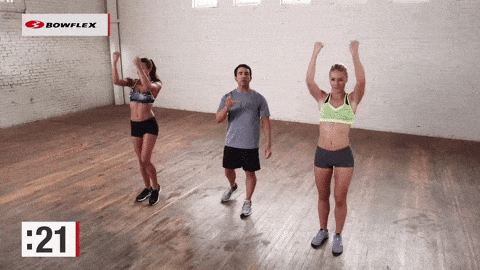Is It Okay to Work Out on an Empty Stomach?
Working out on an empty stomach, also known as fasted exercise, is a practice that has garnered both supporters and critics in the fitness community. Whether it’s beneficial or detrimental largely depends on individual goals, body type, and the type of exercise performed. This comprehensive article explores the pros and cons of exercising on an empty stomach, scientific perspectives, and practical tips for those considering it.
Table of Contents
- Understanding Fasted Exercise
- Benefits of Working Out on an Empty Stomach
- Potential Drawbacks of Fasted Exercise
- Types of Exercises and Their Suitability for Fasted Workouts
- Scientific Perspectives on Fasted Exercise
- Tips for Safe and Effective Fasted Workouts
- Frequently Asked Questions
- Conclusion
1. Understanding Fasted Exercise
Fasted exercise typically involves working out after a prolonged period without eating, such as first thing in the morning before breakfast. The idea is that with low glycogen stores, the body is more likely to burn fat for fuel.
2. Benefits of Working Out on an Empty Stomach
Enhanced Fat Burning
One of the main reasons people opt for fasted workouts is the potential for increased fat oxidation. When glycogen stores are low, the body may turn to fat stores for energy.
Improved Insulin Sensitivity
Fasted workouts can improve insulin sensitivity, which helps in better glucose management and may be beneficial for those with insulin resistance or type 2 diabetes.
Convenience
Exercising first thing in the morning without the need to eat beforehand can save time and simplify routines, making it easier to fit a workout into a busy schedule.
Hormonal Benefits
Fasted exercise can increase levels of growth hormone and norepinephrine, both of which can aid in fat burning and muscle preservation.
3. Potential Drawbacks of Fasted Exercise
Decreased Performance
Without adequate fuel, you might experience reduced strength, endurance, and overall performance, particularly during high-intensity workouts.
Muscle Loss
In a fasted state, the body might break down muscle tissue for energy, especially if protein intake is inadequate.
Low Blood Sugar
Exercising on an empty stomach can lead to low blood sugar levels, causing dizziness, fatigue, or even fainting, particularly in prolonged or intense sessions.
Increased Appetite
Some people may experience increased hunger after a fasted workout, potentially leading to overeating later in the day.
4. Types of Exercises and Their Suitability for Fasted Workouts
Aerobic Exercise
Low to moderate-intensity aerobic exercises, such as walking, jogging, or cycling, are generally well-suited for fasted workouts as they rely more on fat stores for energy.
High-Intensity Interval Training (HIIT)
HIIT can be challenging on an empty stomach due to the high energy demands. Some individuals may find their performance suffers, while others might adapt well.
Strength Training
Lifting weights or performing resistance exercises may be less effective in a fasted state due to reduced glycogen stores and potential muscle breakdown.
Endurance Training
Long-duration activities like marathon training are not ideal for fasted workouts, as they require sustained energy and glycogen reserves.
5. Scientific Perspectives on Fasted Exercise
Fat Oxidation
Studies have shown that fasted exercise can increase fat oxidation compared to fed exercise, particularly in the context of aerobic activities.
Performance
Research indicates mixed results regarding performance. Some studies suggest no significant difference, while others show decreased performance in high-intensity or endurance activities when fasted.
Muscle Preservation
Fasted exercise, especially without adequate protein intake, may lead to muscle breakdown. Consuming a protein-rich meal post-workout can mitigate this risk.
6. Tips for Safe and Effective Fasted Workouts
Hydrate
Drink plenty of water before and during your workout to stay hydrated.
Monitor Intensity
Start with low to moderate-intensity workouts and gradually increase intensity as your body adapts.
Listen to Your Body
Pay attention to how your body responds. If you feel weak, dizzy, or overly fatigued, consider eating a small snack before your workout.
Post-Workout Nutrition
Consume a balanced meal with protein and carbohydrates after your workout to aid recovery and muscle repair.
Consider BCAAs
Branched-chain amino acids (BCAAs) can help preserve muscle mass during fasted workouts.
7. Frequently Asked Questions
Is it safe to work out on an empty stomach?
For most people, low to moderate-intensity workouts are safe on an empty stomach. However, individuals with medical conditions or those prone to low blood sugar should consult a healthcare professional.
Will I burn more fat if I work out on an empty stomach?
Fasted workouts can increase fat oxidation, but total fat loss also depends on overall diet and calorie balance.
Can I build muscle while working out on an empty stomach?
Building muscle is possible but may be more challenging. Consuming a protein-rich meal post-workout can support muscle growth.
8. Conclusion
Working out on an empty stomach has both potential benefits and drawbacks. It can enhance fat burning and improve insulin sensitivity, but it may also lead to decreased performance and muscle loss. The suitability of fasted exercise depends on individual goals, body type, and the type of workout. By understanding the principles, benefits, and risks, and by following practical tips, you can make an informed decision about incorporating fasted workouts into your fitness routine. Always listen to your body and consult with a healthcare professional if you have any concerns.
Related:
At Home workouts for women lose belly
Getting Rid of Belly Fat Women
Getting Rid of Belly Fat Women
Exercise To Reduce Belly Fat For Female at Home
Gym Workouts To Lose Belly Fat
Exercise To Reduce Belly Fat For Female at Home
What Exercises Burn Stomach Fat?





.gif)
